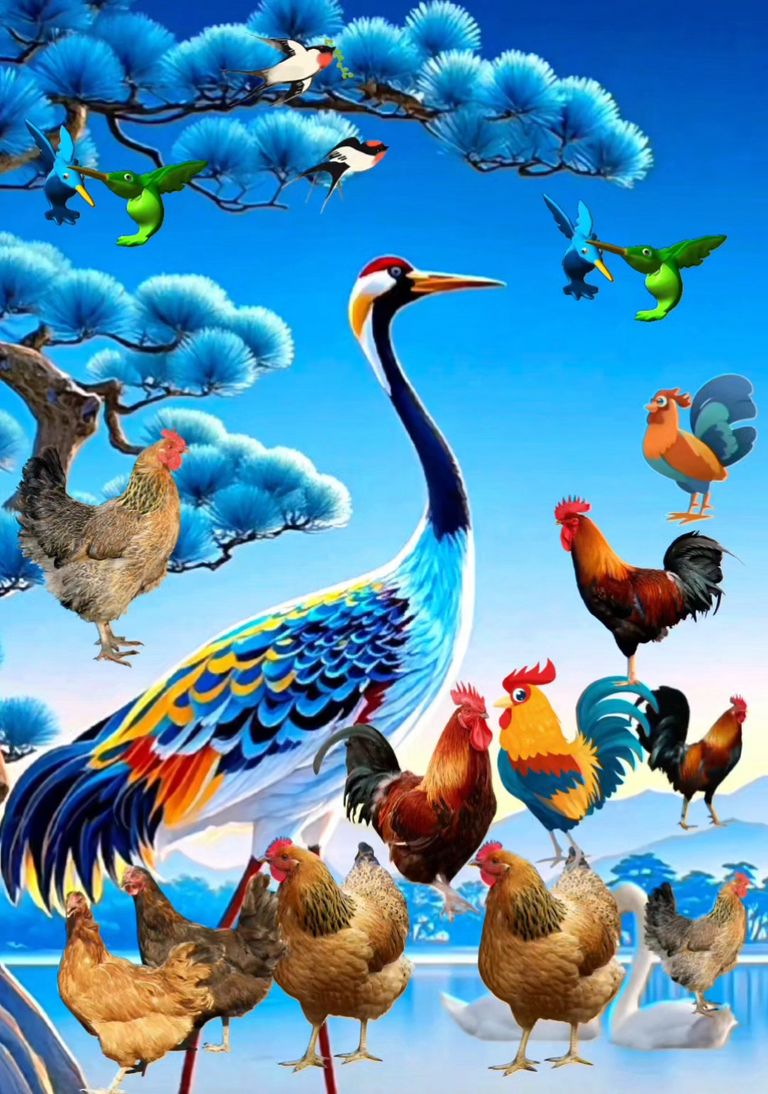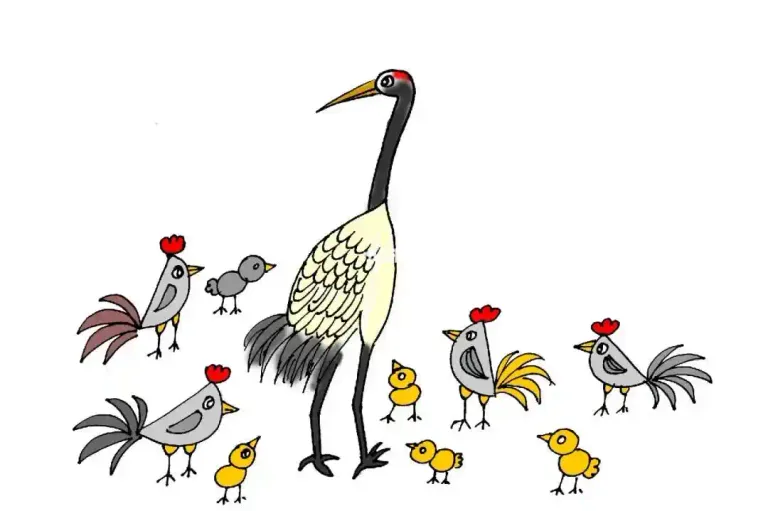
Ji Kang, a philosopher, writer, and musician during the Wei and Jin dynasties, was one of the "Seven Sages of the Bamboo Grove". Ji Kang is still a handsome man with a tall figure and a graceful demeanor.
Ji Kang had a son named Ji Shao, who was tall, intelligent, and handsome. Standing among the crowd, he had a much better appearance and temperament than ordinary people, like a tall wild crane standing among a flock of chickens, too outstanding.
During the reign of Emperor Hui of Jin, Ji Shao served as an attendant and remained loyal to him. Soon after, the imperial family competed for power and profit, attacking and killing each other, known as the "Rebellion of the Eight Princes" in history. Ji Shao followed Emperor Hui of Jin. Many ministers and soldiers fled for their lives, but only Ji Shao always protected Emperor Hui and remained by his side. The enemy's flying arrows rained down, and Ji Shao was hit by several arrows, severely injured, with blood flowing down his body and dripping onto Emperor Hui's robe. Finally, Ji Shao died due to his severe injuries, while Emperor Hui of Jin was able to escape. Afterwards, Emperor Hui's attendants wanted to wash away the blood stains on their robes. Emperor Hui said, "Don't wash, don't wash, this is the blood of Ji Shao!" Emperor Hui of Jin did not allow his attendants to wash away the blood stains on their robes for a long time, as a sign of his longing and recognition for Ji Shao.
When Ji Shao was alive, he came to Luoyang and walked on the streets. Anyone who saw him praised and envied him, and many people couldn't help but follow him. A person inquired from various sources and learned that he was the son of Ji Kang. He went to visit Ji Kang's friend Wang Rong specifically to learn more about the situation. He said, "I saw Ji Shao, the son of Ji Kang, at the market today. He is tall and upright, standing among the crowd like a crane standing among chickens." Wang Rong smiled and replied, "You haven't met his father yet!" This means that Ji Shao is handsome, and Ji Kang's demeanor is better than his son's.
This idiom means standing like a crane in a flock of chickens, metaphorically referring to a person's appearance or talent standing out among a group of people around them.
嵇康,魏晋时期思想家、文学家、音乐家,“竹林七贤”之一。嵇康还是位美男子,身材高大,仪态俊逸。
嵇康有个儿子,名叫嵇绍,体态魁伟,聪明英俊,站在人群之中,容貌气质远远好于一般人,就像一只高高的野鹤站立在鸡群之中,太突出了。
晋惠帝时,嵇绍官为侍中,他对晋惠帝忠心耿耿。不久,皇族争权夺利,互相攻杀,史称为“八王之乱”,嵇绍跟随晋惠帝。很多大臣和将士都纷纷逃命,而只有嵇绍始终保护着惠帝,不离左右。敌方的飞箭,像雨点般射过来,嵇绍身中数箭,身受重伤,鲜血直流,滴在惠帝的御袍上。最后嵇绍因为伤势过重而阵亡了,而晋惠帝得以逃生。事后惠帝的侍从要洗去御袍上的血迹,惠帝说“别洗别洗,这是嵇侍中的血啊!”晋惠帝久久不让随从洗去袍服上的血迹,以表示对嵇绍的思念和表彰。
当初,嵇绍活着的时候,来到洛阳,走在大街上,凡是看到他的人无不赞许称羡,许多人还情不自禁地跟着他走。有个人多方打听,得知他是嵇康的儿子,就专程去拜访嵇康的好友王戎,想了解更多的情况,讲道:“我今天在集市上看见嵇康的儿子嵇绍了。他高俊挺拔,站在众人间,真像一只鹤站立在鸡群当中一样。”王戎听罢笑了笑,回答说:“您还没见过他的父亲呢!”就是说,嵇绍长得帅,而嵇康风度比儿子更胜一筹。
这则成语意思是指像鹤站在鸡群中一样,比喻一个人的仪表或才能在周围一群人里显得很突出。
